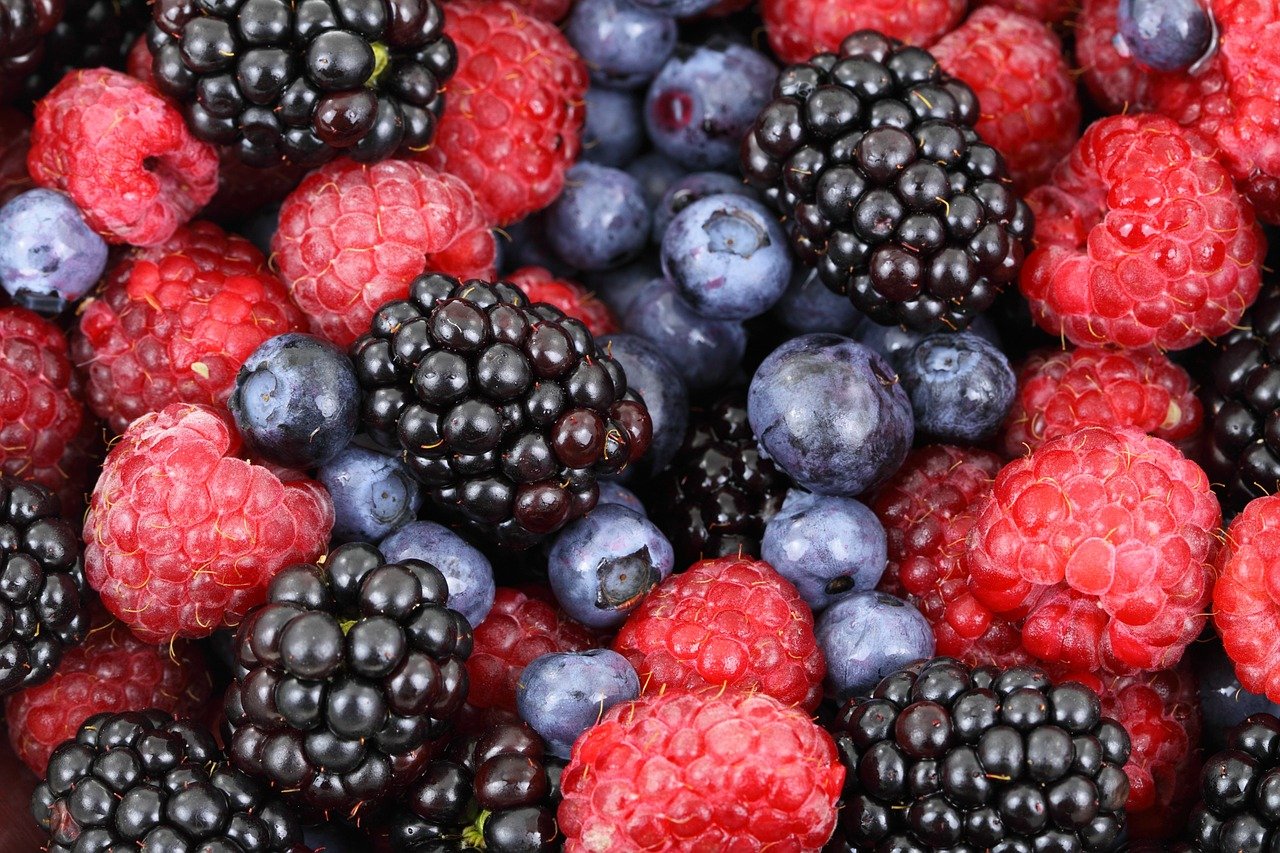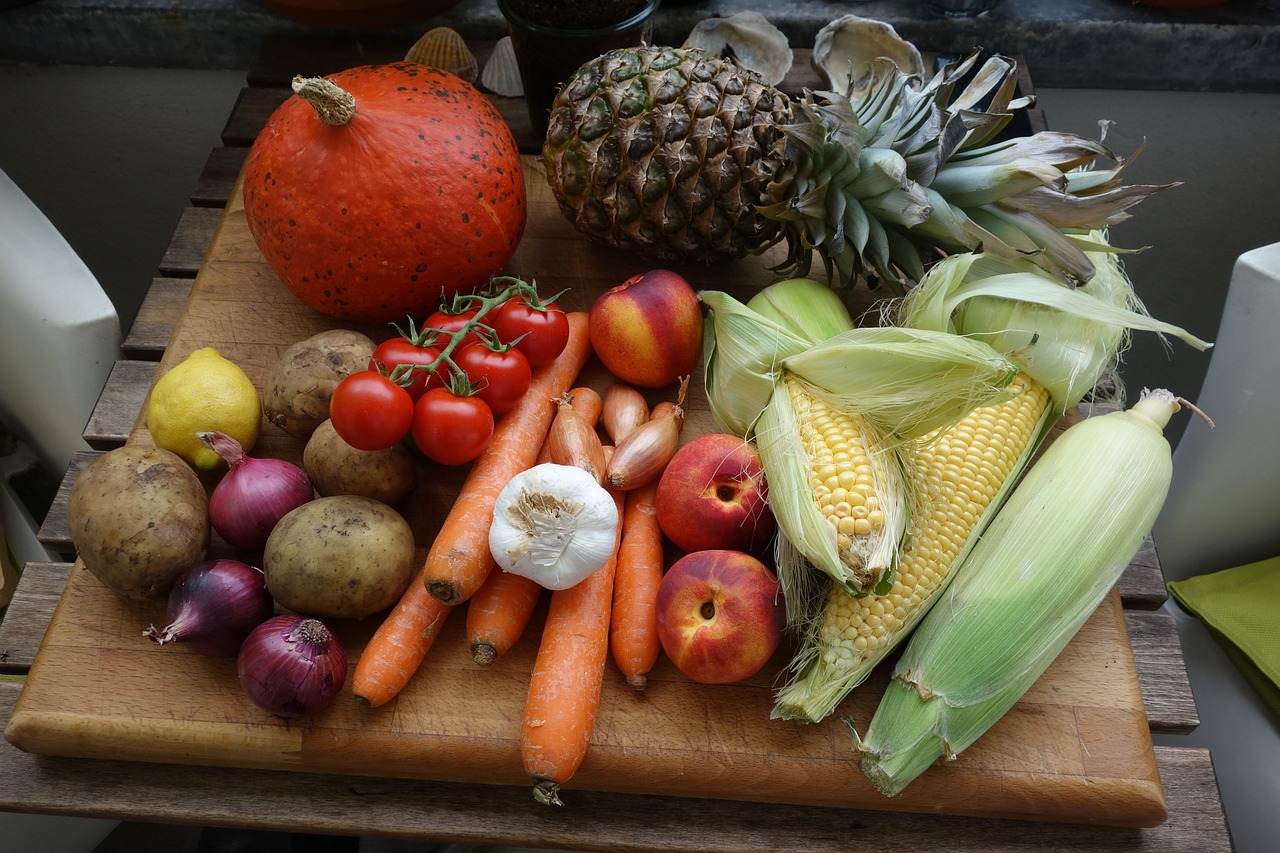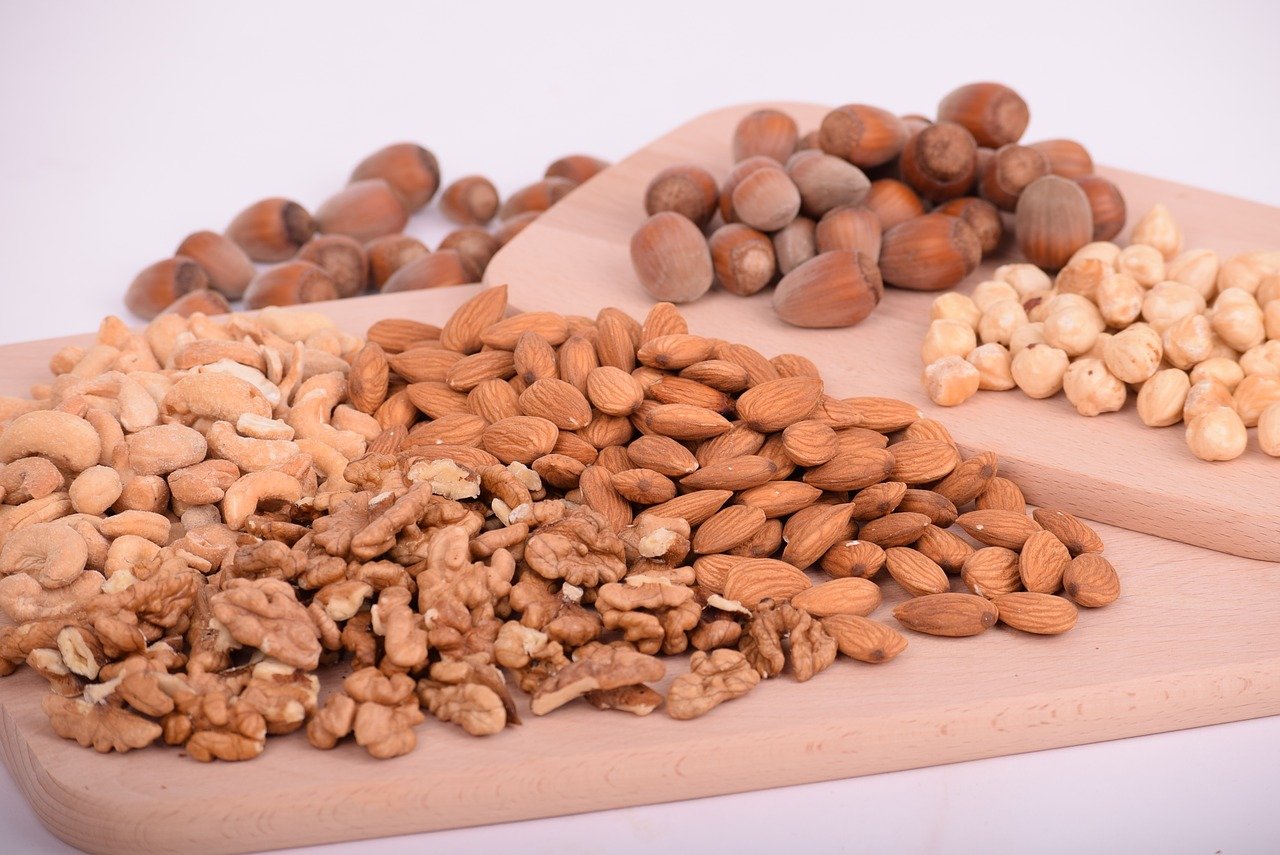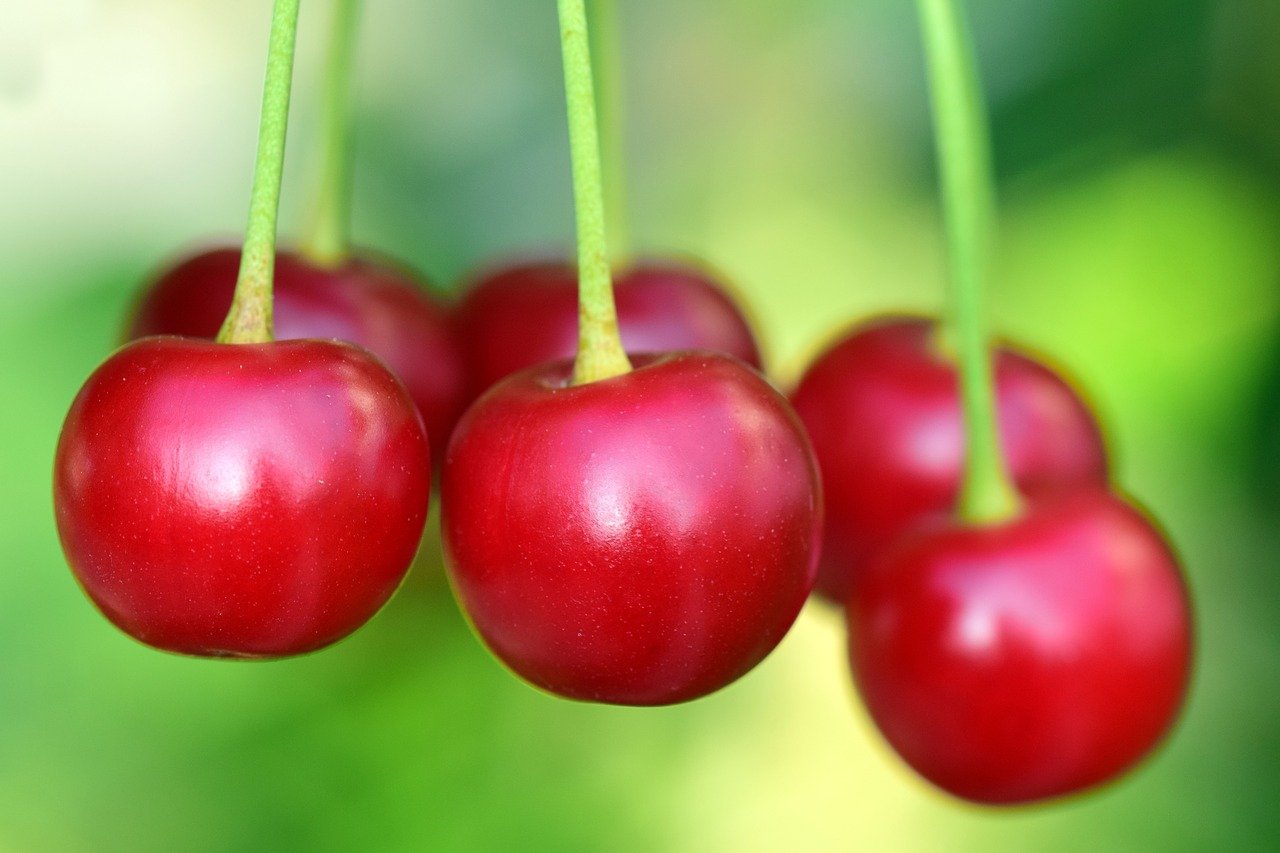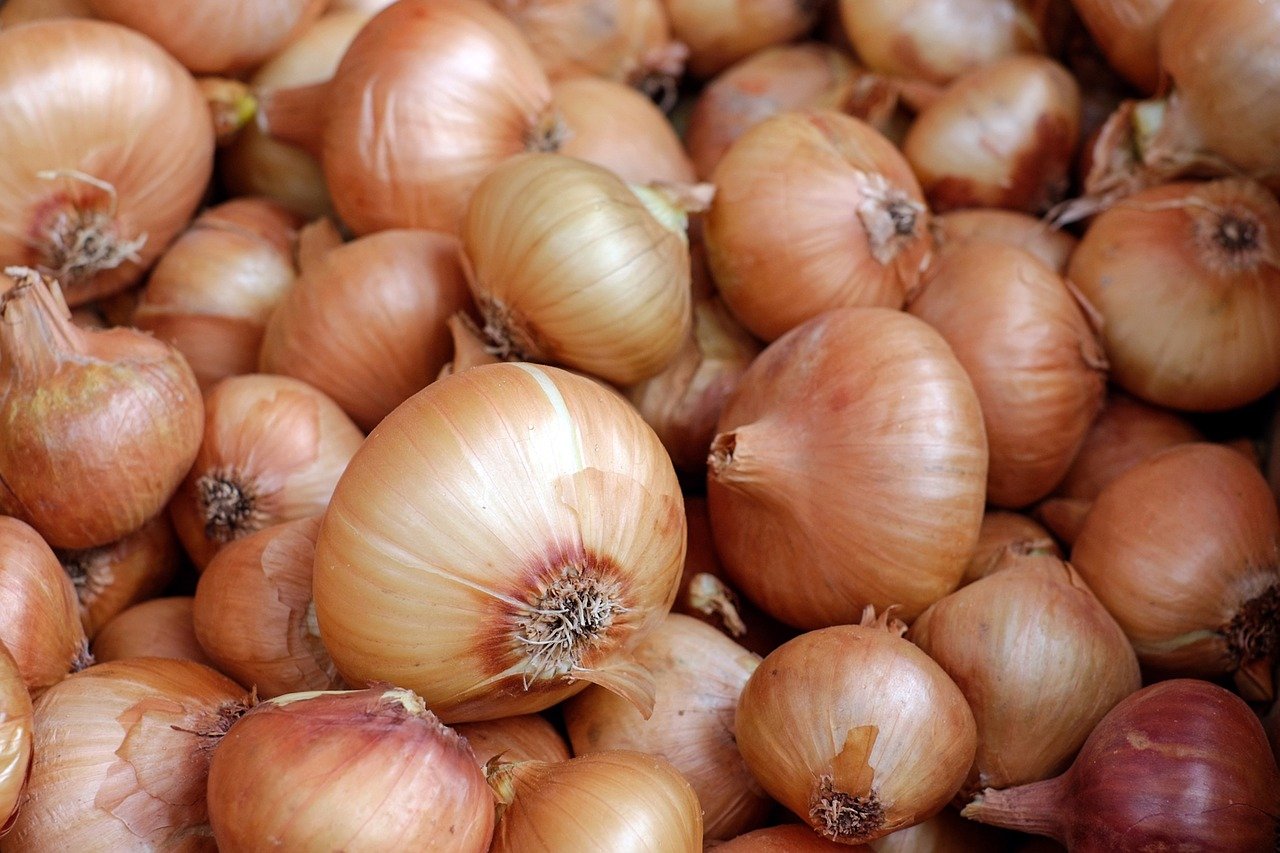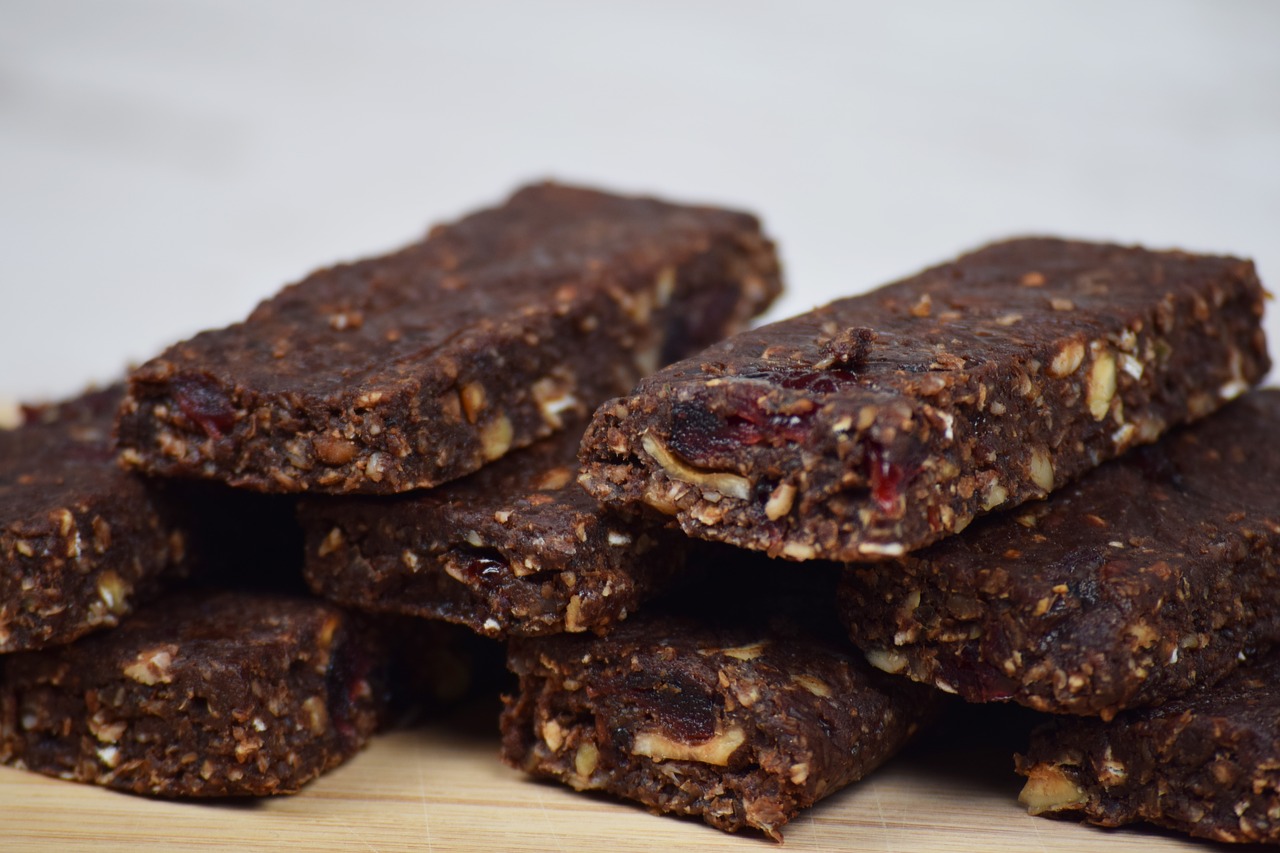Fruits and Vegetables
Fruits, Vegetables and Alzheimer's
A variety of fruits have been shown to have positive effects on cognition and Alzheimer’s. Fruits tend to have more sugar than vegetables, so if you decide to limit your sugar intake, which is probably a wise choice if you want to avoid Alzheimer’s, then it would be a good idea to also limit your fruit intake. A couple root vegetables have also been shown to have protective effects. Root vegetables tend to have a lot of carbohydrates which can also affect a ketogenic diet.
Juices and Extracts in Randomized Clinical Trials
Many of the randomized clinical trials involving fruit or vegetables are delivered to subjects through juice consumption or administration of extracts. Juice is typically high and sugar and even though there may be cognitive benefits to fruit juice, it may come at a price. High sugar intake has been associated with many negative health effects including cognitive decline. On the other hand, there have been concerns about the efficacy and safety of commercially sourced extracts. In 2019, a study by Fenclova et al. investigated 26 commercially prepared milk thistle extracts. Milk thistle is used to treat liver diseases and the investigators found that the concentration of the active ingredient as well as contaminants such as mycotoxins, plant alkaloids, pesticide residues, and microbes. They found that the concentrations of active ingredients often differed from manufacturers claims and that the concentration of active ingredients in different batches from the same manufacturer were often substantially different. Even worse, every extract tested contained high concentrations of mycotoxins and pesticides were detected as well as substantial amounts of microbes.1
Pesticides in Extracts Could Increase Alzheimer's Risk
The concerns raised by extracts could be the cause of conflicting results of some studies, but more importantly, they could be detrimental to our health. When consuming fruits and vegetables, it might be best to eat these whole rather than extracts and to buy organic. Observational studies tend to show that life long pesticide exposure increases Alzheimer’s risk, but the results of these studies have been inconsistent. In 2016 a meta-analysis was conducted on seven pesticide studies to determine if there is indeed an association between pesticides and Alzheimer’s disease. Indeed, there was a correlation and the investigators determined that pesticide exposure does increase risk of Alzheimer’s. With that in mind, it would be best to eat fresh organic fruits and vegetables rather than taking extracts or eating non-organic foods.2
Randomize Clinical Trials of Fruits and Vegetables
Everyone already knows that fruits and vegetables are healthy. Therefore there is no need to discuss each fruit and vegetable found to be protective in excruciating detail. Instead, randomized clinical trials involving fruits and vegetables are provided in a table format. However, one should keep in mind that some of these fruits and vegetables may not fit in with a diet that you may have decided on. For example, yams have been shown to be protective against Alzheimer’s disease, but being a root vegetable it goes against the Nordic Prudent diet. Likewise, eating a bunch of oranges would not keep you in ketosis if you are on the ketogenic diet.
Food Item | RCT Info | Author Info | Links | Outcomes |
Grapes | Grape Juice provided to older adults with MCI | R. Krikorian et al. in 2012 | Greater brain activity in fMRI | |
Grape Juice administered to older adults with MCI | R. Krikorian et al. in 2009 | https://pubmed.ncbi.nlm.nih.gov/20028599/ | Improved verbal learning | |
Grape extract administered to healthy older adults | G. Calapai, et al in 2017 | MMSE scores improved | ||
Grapes administered to MCI subjects | J. Lee, et al. in 2016 | Better brain metabolism compared to placebo. No difference in cognitive scores. | ||
Oranges | Orange juice administered to older healthy adults | R. Kean, et al. in 2015 | Global cognitive function improved | |
Orange juice administered to young healthy adults | D. Lamport et al. in 2017 | Increase brain blood flow and performance on the digital symbol substitution test. | ||
Cherries | Cherry juice administered to older adults with mild to moderate Alzheimer’s. | K. Kent et al. in 2017 | Improvements in verbal fluency, short-term memory, long-term memory and blood pressure | |
Pomegranate | Pomegranate juice administered to middle-aged and older adults | P. Siddarth et al, in 2020 | Treatment group performed better on visuospatial tests | |
Pomegranate juice administered to middle-aged and older adults with memory complaints | S. Bookheimer | Treatment group has improved verbal memory, antioxidant capacity, and brain activity. | ||
Beets | Beet juice administered to healthy adults | E .Wightman et al. in 2015 | Increase in cerebral blood flow and calculation ability improved | |
Yam Extract | Yam extract administered to healthy adults | C. Tohda et al in 2017 | Increase semantic fluency |
Berries, Fruits and Vegetables Sections
Alzheimer's and Specific Foods
Fruits, Vegetables and Alzheimer's References:
- Fenclova M, Novakova A, Viktorova J, Jonatova P, Dzuman Z, Ruml T, Kren V, Hajslova J, Vitek L, Stranska-Zachariasova M. Poor chemical and microbiological quality of the commercial milk thistle-based dietary supplements may account for their reported unsatisfactory and non-reproducible clinical outcomes. Sci Rep. 2019 Jul 31;9(1):11118. doi: 10.1038/s41598-019-47250-0. PMID: 31366891; PMCID: PMC6668463.
- Yan D, Zhang Y, Liu L, Yan H. Pesticide exposure and risk of Alzheimer’s disease: a systematic review and meta-analysis. Sci Rep. 2016 Sep 1;6:32222. doi: 10.1038/srep32222. PMID: 27581992; PMCID: PMC5007474.
Back to Diet and Alzheimer's:
Determine which diet and nutrition plan is best for you based on your Apoe status and subtype.

